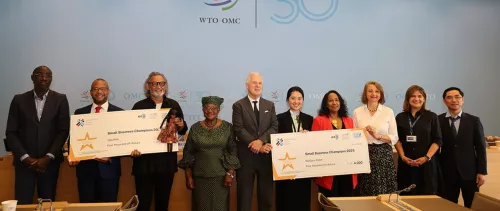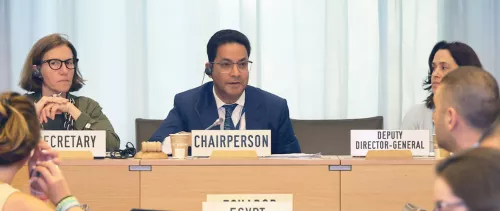
WTO members hold focused discussions on harnessing digitalization to facilitate trade
At a meeting of the Committee on Trade Facilitation on 16-17 April, members kicked off discussions on utilizing digital tools to optimize the movement of goods across borders in line with the committee’s decision to focus on this topic in 2024. Members heard presentations on national experiences with using digitalization to facilitate trade. The committee intends to explore this topic in further meetings and summarize discussions at the end of the year.
Three sub-topics were addressed at the meeting, namely: using data and technology to simplify trade; promoting the implementation of the Trade Facilitation Agreement through the digital revolution and smart technologies; and digitalization of border procedures. Ten delegations shared their experiences: China, Costa Rica, Guatemala, Japan, Pakistan, Peru, the Dominican Republic, the United Kingdom, the United States, and Togo. Presentations can be accessed here.
“We could see elements like the use of data, electronic certificates, as well as smart customs and single windows. It was also very interesting to see the benefits of digitalization in terms of time and cost reductions,” the chair of the committee, Mr Carlos Guevara (Ecuador), said in video remarks released at the end of the meeting. “The aim of the committee is to have a document that could capture the lessons learned and good practices that we can identify in this exercise.” His video message can be accessed here.
The other topics under the digitalization theme which will be taken up at the next committee meetings will be formalities and documentation requirements to facilitate trade; and “single windows.” Members will later decide what format the compilation of discussions will take, with the aim of condensing the lessons learned by members into a tangible result at the end of the year.
The WTO Secretariat provided a status report concerning the ratification and implementation of the Trade Facilitation Agreement.
The TFA entered into force in 2017 and contains provisions for expediting the movement, release and clearance of goods, including goods in transit. It is the first WTO agreement in which developing members and least developed country (LDC) members can determine their own implementation schedules and seek to acquire implementation capacity through the provision of related assistance and support.
According to the Secretariat’s update, as of 16 April, notifications submitted by developing members and LDC members indicate that they have committed to implement 73.1% of TFA obligations. Developed members were required to implement all provisions of the TFA from its entry into force. Furthermore, seven members are yet to deposit their ratifications of the TFA; Venezuela said at the meeting it aims to do so soon. The Secretariat’s presentation can be accessed here.
The committee reviewed over 40 notifications from members during the meeting. Other topics covered included Brazil’s presentation on results from its study on cargo release time for exports; the United States’ concern over Indonesia’s customs procedures for intangible products; updates from the TFA Facility; and work related to trade facilitation by the Informal Working Group on Micro, Small and Medium-Sized Enterprises (MSMEs). The chair furthermore requested members to send comments in writing on the “Document Containing Good Practices and Building Blocks of Successful National Trade Facilitation Committees” before the next committee meeting to ensure the document reflects the experiences that have been shared by members and international organizations.
The next committee meeting will be held on 9 and 10 July.


